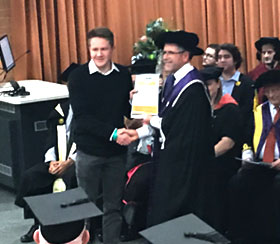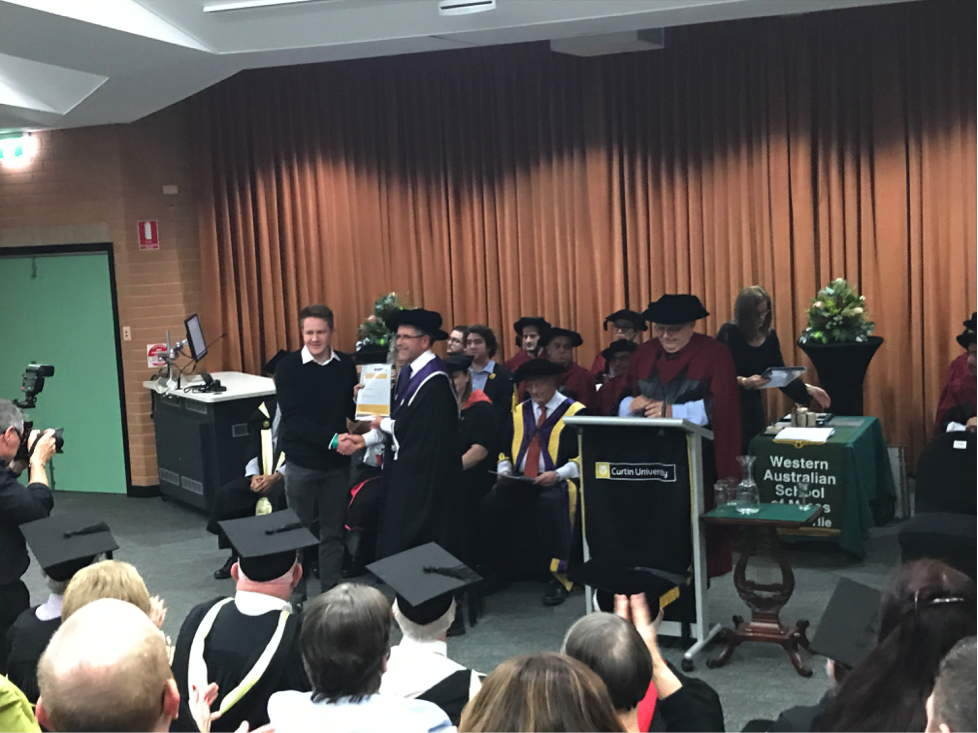
May, 2017 Perth, Australia
Jenike and Johanson is proud to award Dirk Oskar Garland the Jenike and Johanson Prize for highest grade in bulk materials component of PRRE2002 at the Western Australian School of Mines, Kalgoorlie Campus.

We asked Dirk about some of his thoughts on Bulk Solids handling:
What was it about bulk solids that attracted you to it and to apply yourself so passionately?
The fundamentals of bulk solids science are reasonably simple and the approaches to solving problems are quite systematic, which is something that I can appreciate. I think what really drew me in was how easy it was to see the real world applications of the theory.
What aspect of bulk solids science did you find the most interesting during your studies?
My studies have included a ‘materials handling’ unit that focussed on bins and hoppers and the behaviour of bulk solids. I found the interactions between individual particles and the effects of moisture on those interactions to be quite interesting, especially since it then has follow-on effects on systems like bins and hoppers.
What was the most surprising thing you learnt about the behaviour of bulk solids?
The thing I found most surprising was the fact that many mining operators dealing with bulk solids did not regularly check and improve their systems. I would have thought this to be common practice, as everybody is aiming for maximum productivity and efficiency, which is certainly something that should be applied to such an important part of an operation.
Things are changing in mining and while there will always be a need for the basic science, the way it is applied may change? How do you think things might go in the future?
I can see that the major focus of science in the mining industry is heavily shifting towards the automation of operations. Technology is increasingly becoming a major component of the industry with the introduction of systems like the Internet of Things (IoT) and even on a small scale like using drones for surveying and monitoring purposes. I think improvements and changes in processing technologies will have a large effect on bulk materials science and will perhaps introduce new types of materials, with new challenges to face.




